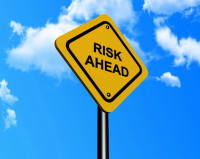Categories
- Additional Insured
- ChildrensProducts
- Claims Made
- Cyber Insurance
- Dietary Supplements and Nutraceuticals
- Ecigarettes
- Firearms Insurance
- Food Products
- Foreign Products Liability
- Foreseeable Misuse
- Frivolous Lawsuits
- General Liability
- Industrial
- Infographics
- Intellectual Property
- Looking ahead
- Marijuana Liability
- Medical Products
- Mutual Indemnification
- Nano Technology
- News
- Online Sellers Insurance Requirements
- Outsourcing
- Piercing The Corporate Veil
- Pollution Liability
- Product liability
- Product Recall
- Retail Chain Store
- Start-Up Business
- Statute of Repose
- Surplus Lines Insurance
- Technology
How will surge in product recalls impact small businesses?

Recall-weary consumers ignoring recall notices increases liability risks
In 2011, there an average of 6.5 recalls a day. This is a 42.5 percent increase in recalls from 2007.
U.S. regulators, manufacturers, distributors and product liability insurance carriers are concerned the recall-weary public are tuning them out. Ignoring product recalls raises the risks of more consumers being endangered, which results in more product liability claims. This in turn results in Product Liability premium increases for manufacturers and distributors.
A business’s reputation is easily tarnished if there isn’t an effective product recall plan in place that quickly notifies the customers who purchased the defective products.
Passing on the burden to suppliers
In addition to increased premiums, there’s an increase in the number of businesses requiring suppliers to carry Product Recall Insurance. Product Recall Insurance typically covers the direct cost of
- notifying customers that purchased the defective product;
- shipping;
- extra warehouse and storage;
- disposal of the products; and
- additional personnel required to conduct the recall.
However, many businesses go a step further, asking suppliers to ensure their product recall policy includes third-party coverage. This covers damages sustained due to a product recall and includes but is not limited to
- the direct cost (see above) sustained by businesses as a result of recalling a product;
- business interruption losses (the purpose of this insurance is to put the business in the same financial condition it would have been had no loss occurred);
- the cost to repair and rehabilitate brand reputation; and
- additional cost to purchase substitute goods to replace the recalled products.
The effect on start-up and small businesses
The increase in the number of recalls is now starting to overwhelm even the most prepared retailers, wholesale distributors and manufacturers. By requiring that their suppliers carry Product Recall Insurance with third-party coverage, businesses can respond more quickly and decisively to a product recall without fear of being damaged financially.
My concern is whether the cost of doing business will be too high for many start-ups to place their products in the market. It’s not uncommon for manufacturers, retailers and wholesale distributors to test market or make small initial purchases to determine a product’s success. As a result, start-up and small businesses may not make enough income in the first year to offset the additional cost of the product recall premiums. They may not survive long enough to properly introduce their products to a broader market.
-
 Click the Button Below to Get Your
Click the Button Below to Get Your
No-Obligation Quotes from Among the
Top 18 Leading Insurance Carriers Today -
Recent Industry News
- Amazon Sellers and Vendors Strategy Including Insurance Requirements
- Walmart Sellers Insurance
- Product Liability Limit Requirements of Online Sellers
- State-by-State Product Liability Analysis of Laws Impacting Businesses
- Children’s Product Liability: Strange Claims and Need for Insurance
- Product Liability vs. Environmental Insurance for the Chemical Industry
- Product Liability in the 3D Printing Industry: New Materials and Their Significance
- Product Liability Concerns in Agricultural Equipment Enhanced with Artificial Intelligence
- Navigate Product Liability in Battery and Solar Industry
- Cyber Risk Insurance Is Essential Business Insurance in Today’s Modern World
Monthly News Archives
